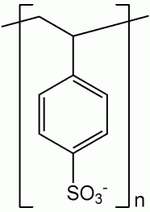Clinical Question
What is the best acute treatment of an elevated serum potassium level?
Evidence-Based Answer
According to disease-oriented evidence, insulin and intravenous glucose, inhaled albuterol (Ventolin), and dialysis are the best treatment options; the first two may be given in combination. Bicarbonate or resins are not recommended for routine use, particularly without one of the more effective agents listed above.
Practice Pointers
Acute treatment of hyperkalemia falls into the still considerable "widely used but little studied" category of medical interventions. No study has reported outcomes that matter to patients, such as the likelihood of death or cardiac arrhythmias. The available literature focuses largely on the ability of interventions to lower serum potassium levels acutely. The Cochrane review by Mahoney and colleagues applies to patients with a significantly elevated potassium level (i.e., greater than 6.5 to 7.0 mEq per L [6.5 to 7.0 mmol per L]).
The researchers identified 12 randomized, quasi-randomized, or crossover studies comparing different approaches to the treatment of hyperkalemia. In a quasi-randomized study, assignment to treatment groups is based on the day of the week or time of day rather than true randomization, making bias more likely. The crossover studies typically involved a series of interventions in the same small group of hemodialysis patients. Each patient acts as his or her own control, so it is possible to have a much smaller sample size and still obtain statistically significant results. only four studies used blinding, and only four concealed allocation to treatment groups adequately. Most of the patients studied had acute or chronic renal failure and were receiving hemodialysis.
Nebulized or inhaled albuterol proved effective; a dose of 20 mg was more effective than 10 mg in lowering potassium levels, and both doses were better than placebo. Intravenous albuterol and levalbuterol (Xopenex) were no more effective than inhaled albuterol. The combination of insulin with intravenous glucose was effective, as was dialysis. In one study, the combination of insulin, glucose, and inhaled albuterol was more effective than insulin and glucose alone. Although potassium-binding polystyrene resins such as Kayexalate are widely used, only one study evaluated their effectiveness in the acute setting, and they proved ineffective. Adding bicarbonate to insulin and glucose was helpful in one study but not in another.
A review of the National Guideline Clearinghouse Web site (http://www.guidelines.gov) did not identify any practice guidelines for the management of hyperkalemia. Recommendations from textbooks vary considerably. For example, Griffith's 5-Minute Clinical Consult 20051 recommends dextrose and insulin, sodium bicarbonate, and polystyrene resins but does not mention inhaled beta agonists.
Mahoney BA, et al. Emergency interventions for hyperkalaemia. Cochrane Database Syst Rev 2005;(2):CD003235.
REFERENCE
(1.) Dambro MR, ed. Griffith's 5-Minute clinical consult, 2005. CD-ROM ed. Philadelphia: Lippincott Williams & Wilkins, 2004.
The series coordinator for AFP is Clarissa Kripke, M.D., Department of Family and Community Medicine, University of California, San Francisco.
COPYRIGHT 2005 American Academy of Family Physicians
COPYRIGHT 2005 Gale Group



